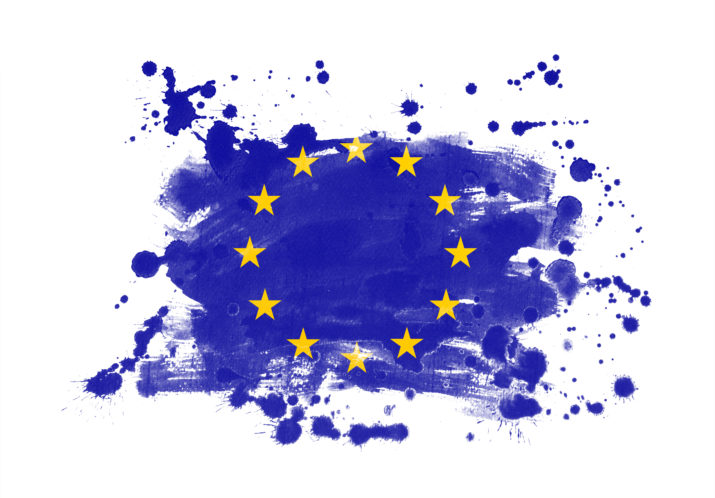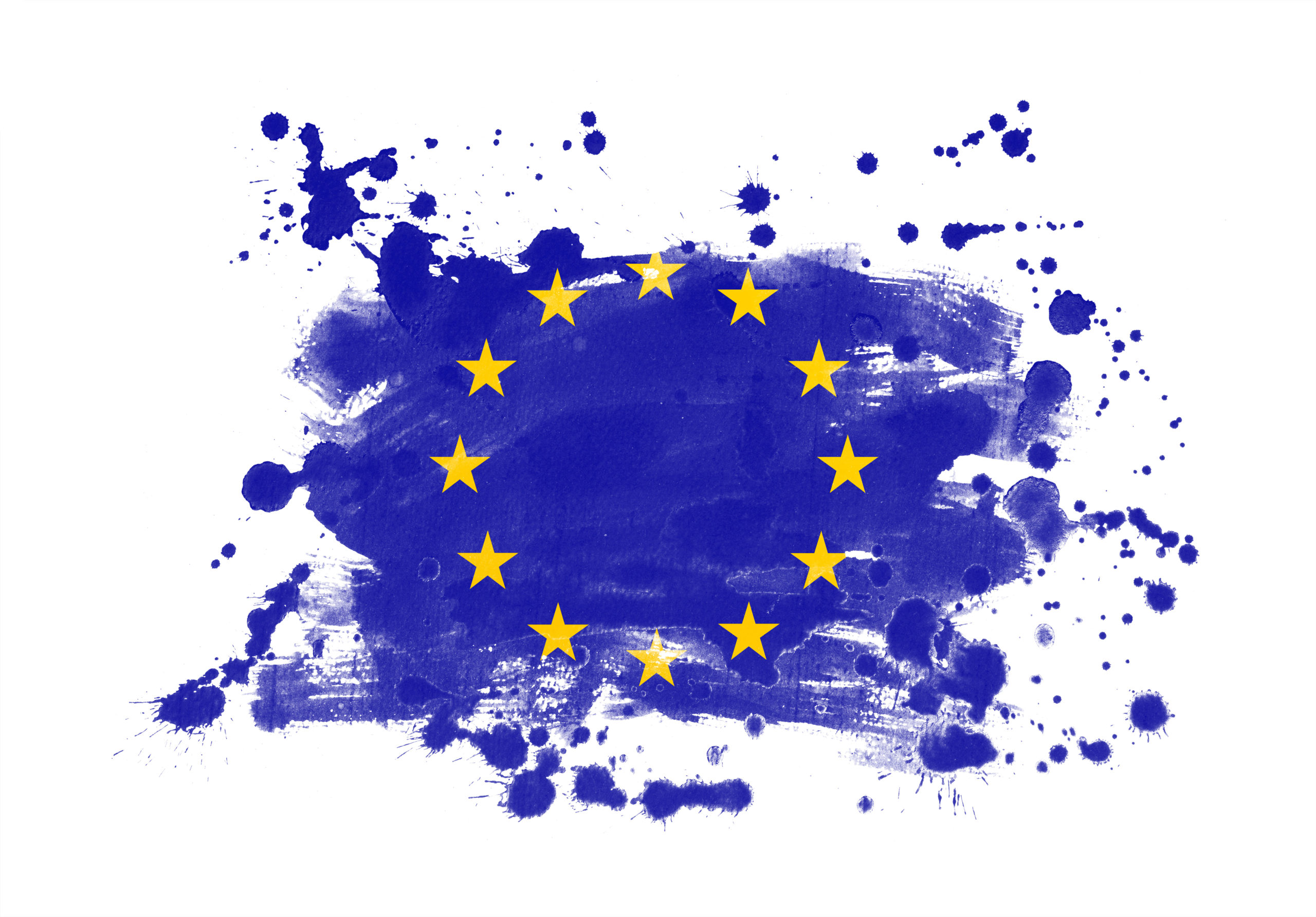

“They couldn’t grasp the idea of a country where someone, anyone, could decide to move to another town and just go there. Suppose everybody wanted to live in Bohemia when their job is in Moravia! How would such a society work?”
—Jan in Tom Stoppard’s Rock ‘n’ Roll[1]
As of late April, eighteen of the twenty-six member countries of the Schengen Area were conducting internal border checks.[2] In May, European Union institutions awoke to the need to “reopen” Europe before summer, the high season for the tourism industry which has been responsible for one tenth of Europe’s GDP.[3] Even so, the emerging framework for renewed movement has been much more limited than the old Schengen freedoms to which the continent and outside visitors had become accustomed. In its place we have witnessed an expanding universe of “travel bubbles” (of free movement between countries with limited COVID-19 cases), other bilateral agreements, proposals for EU-wide color-coded and testing-based travel, and the many remaining unilateral closures.[4] As Europe struggles to rescue the “old normal” of free movement, the stakes are higher than beach vacations or a business merger across European boundaries. Instead the very European project is at stake, at least as the embodiment of a set of cosmopolitan and peace-building norms that have guided an increasing proportion of the continent for close to seventy years.
The centrality of movement to the promise of a unifying Europe becomes clear when we examine its importance to both the institutional framework of European cooperation and the broader global context within which it arose. A central aspect of this context was empire, primarily overseas, but also on the European continent, and specifically the cosmopolitan emphasis that Europeans placed on communication. European travel, commerce, and settlement were only made safe for the rest of the world, once they turned inwards and resulted in the Europe of free movement. Now, other powers no longer fear European wanderlust, nor do they support the institutional structures that contain it within one continent. Therefore, Europeans are also increasingly alone in defending international and transnational cooperation based on a multifacetedly human paradigm.
Why movement is at the center of the European project
Free movement is not merely a nice-to-have feature of the European project. It is an essential norm because the EU has pacified roving Europeans and by doing so provides a tangible example of the benefits of cosmopolitanism. Cooperative norms arose from the history of displacement at the end of World War II and the unravelling of Europe’s overseas empires. Such experiences also meant that movement, rather than stasis, should be recognized as the historical and formative norm.[5] Migration has shaped Europe, but it has also shaped the world through empire, giving European political, juridical, and economic practices a planetary reach. Most importantly, the competitive system of territorial sovereignty is the primary European imprint on the world and very much an outcome of European movement, of Europeans both expanding their horizons and spreading their control and commerce to cover the globe.[6] During the decades following World War II, as Europeans reluctantly abandoned their imperial aspirations overseas, they also turned to the project of unifying their own continent. Although the architects of European integration of the latter half of the twentieth century were increasingly conscious of distancing the project of European integration from empire, pan-European thinking existed amongst many imperial legacies and entanglements.[7] After World War II, the imperially infused pan-European thought that had been popular in the aftermath of the Great War was even marshalled to construct an anti-communist front against the Soviet Union.[8]
The extent to which Europe’s four fundamental freedoms capture the spirit of an empire coming home remains striking. Dating back to the Treaty of Rome of 1957, the European Economic Community was all about the “elimination” and “abolition” of any obstacles that stood in the way of the free movement of persons, services, capital, and goods.[9] In the words of one influential observer, these freedoms have remained the EU’s very essence,[10] and earlier they had been the kinds of ends for which Europeans had set up competing empires. Importantly, they afforded Europeans the benefits of movement without threatening the outside world. Part of the reason why European movement had proven so threatening to the outside world was that it was never entirely clear where Europe ended and what remained to be incorporated or conquered by it. In the words of the veteran Singaporean diplomat Kishore Mahbubani: “Europe is cursed with an unlucky geography.”[11] Europe is no Australia—not even the Americas, or even Africa.
Europe exists through political definition, or as French President Emmanuel Macron puts it as a “political project” and, as Anthony Pagden argues, it has been exceptional in maintaining a European identity in addition to sub-European ones.[12]Europeans may have arrived at this arrangement through insecurity, their encounters with other cultures, but it has also been a source of strength as today’s Union shows. Other continents arrived at continental understandings of themselves much later, not least because they had been at the wrong end of European empire. But empire also provided a springboard for “remaking” continents, contesting European supremacy through broader self-definition.[13] Meanwhile in Europe, the EU became the clearest and most successful example of an organizing mechanism, a way of determining who was in and who was out, who could move freely within and who remained without that privilege. The latter was most poignantly on display during the different stages of the refugee crisis, which saw many seek out the promise of Europe only to be rejected by it. That crisis remains far from resolved as the EU struggles to find a humane but broadly acceptable approach to irregular migration.[14]
Why imperial legacies compete
While the process of integration that led to the European Union appeared at the tail end of the European empire, it had several legacies, including ones harking back to the early days of overseas expansion. For some, along the Atlantic seaboard, and especially in cities of northwestern Europe, such as Amsterdam, London, and Paris, as well as for ones in Iberia, empire opened up a world of movement. In the context of sixteenth-century debates over early Iberian empire, Francisco de Vitoria, a leading Spanish scholastic, arrived at a “right of communication,” a category based on natural human sociability and one that establishes the right to encounter people from around the world, for example, for the purpose of commerce.[15] However, Vitoria went as far as saying that this right went beyond mere visitation and included the right of settlement, something to which his colleagues and contemporaries objected as, surely, he would not allow a similar right within Europe.[16] The early scholastic vision of free travel around the globe made its way north to the Dutch Protestant jurist and theologian Hugo Grotius, who adopted it as part of his early-seventeenth-century defense of Dutch incursions into Iberian imperial spaces. The commonplace for this argument was found even deeper, in Virgil’s Aeneid: “What race of men, and what land is so barbarous as to permit this custom? We are debarred the welcome of the beach.”[17] Anyone should be allowed to seek safety on a foreign shore and expect a hospitable welcome.
Throughout the seventeenth and eighteenth centuries, several Europeans, such as the natural philosopher and historian Samuel Pufendorf, objected to a right of unrestrained movement and questioned the very volition to overseas travel.[18]Also, many voices suggested that such a self-asserted right had too easily and often translated into conquest and violence. In this vein, Adam Smith believed that the solution lay in modern systems of communication, allowing fewer people to travel the world without losing the benefits of convergence. Trade would bring about a form of universal rule without violence, a regime based on mutuality and a re-engineered form of hospitality. Smith also conjectured that communication would equalize global power relations, a fact he did not lament as it would lay the groundwork for a more just world. The dynamic described above between European integration and overseas empire also harks back to judgements on early modern lessons. Most famously, Immanuel Kant saw “perpetual peace” not only as a form of republican integration, but also as a way of restraining wanderlust into a peace system. That was the view from Königsberg, safely removed from northwestern Europe, home to those with the wanderlust, the desire to communicate, to move about the world and practice unrestricted commerce and even settlement. Kant pacified the right of communication for Europe.
Albeit Prussia—Kant’s country—had had its halting attempts at overseas empire, it and the Habsburg lands to its south were relatively staid affairs rather than vessels of wanderlust in pursuit of glory and mammon. Recently, the centenary of the collapse of the Habsburg Empire brought with it some predictable reminiscing for the World of Yesterday.[19] These accounts turned to the multinational and cultural nature of Austria-Hungary, drawing progressive lessons especially from its later years.[20] However, it was only in the mid-nineteenth century that the feudal system was fully abolished, allowing for freedom of movement and profession for all.[21] Whether such efforts were always doomed to be insufficient or even incompatible with that imperial legacy is a subject for a longer examination, but for our purposes it demonstrates how the longer term Habsburg legacy is one of many nations with limited movement. Its imperial wreckage also served for a repurposed vision of economic governance free from the troubles of fully enfranchised politics.[22] To make matters worse, for much of the twentieth century, under Soviet imperative, most of former Austria-Hungary was programmatically shut off from the Europe that lay to its west.[23] The legacy of those lands of central and eastern Europe is one stillness, of limited movement for good or for ill.
Why the deck is increasingly stacked against Europe
The European project has always been a pony with many tricks, a merger of many legacies, and, until now, Europe has managed its democratic deficit with a combination of mobility and economic and legal governance. The EU is the only mechanism that has made European movement safe for Europeans and non-Europeans, while promoting Europe’s prosperity. By delivering prosperity and inculcating cosmopolitanism, it has also produced peace. If we lose the cosmopolitanism, the commitment to coming physically together, it seems unlikely that we can hold onto Europe’s prosperity either. Prosperity is also a question of finances, which have been dividing Europeans for at least a decade, and once again Europeans are at loggerheads with each other. Economic governance without mobility looks like a real possibility in a Europe of arbitrary borders and shared debt. At the very least, a world in which mutualized debt exists without Schengen would be one of dehumanized integration. A fiscal union without a full commitment to the freedom of movement would end the debate on Europe’s democratic deficit by sounding the death knell for democracy. In its lieu we would have feudalism tying people to their land, while capitalism would share their wealth between capitals. Such a Frankenstein would merge the imperial legacy of northwestern Europe and the burdens of central and eastern Europe’s closed societies.
There is more than a little dark irony in how the fate of Europe hangs in balance due to a pandemic, as it was from the ashes of the most destructive of them, the Black Death, that Europe was formed. Parallels exist between the arrival of the plague along trade routes from Asia and our current assessments concerning the riskiness of travel and diversified supply. Such perils of connection diminished the prospects of a united Eurasia for many centuries, but now Europe may be facing too formidable forces. In early 2016—back when adventuring was still possible—a former Portuguese European minister, Bruno Maçães, traveled through the borderlands of Europe and Asia. He returned with a message about the dawn of Eurasia, the vanishing border between the two continents.[24] His thesis points to the reality that Europe has always been a geopolitical entity in the very basic sense that it is a geography created through politics. Although populists and extremists draw strength from a focus on “Gates of Vienna” or Granada, such boundaries are a subject of interest to others, too. As a reminder of the EU’s territorial and jurisdictional inheritance, and how its source lies awake, the French finance minister has recently called for a “New Empire” with the aim of countering US and Chinese encroachment.[25]
For some time, most other powers supported the shift of European focus from overseas empire to continental communities and, ultimately, union. What became known as the European project could since its inception count on backing from the US, which by its very constitution—both narrowly and broadly understood—saw the promise of cooperation and, ultimately, federalism. By contrast, during the period of intra-European acrimony of the 2010s, we saw a Washington that did not look to further a Europe united and, therefore, strong. Meanwhile, China has been busy spreading its influence across the continent, under the guise of its Belt and Road Initiative, and at the start of Europe’s COVID-19 crisis Beijing’s care packages filled the vacuum left behind by Brussels and, notably, Berlin. Other EU members will not forget how early in the crisis Germany had, instead of offering help, placed export controls on vital supplies. Add to the picture a Russia that may not be in the position to carve up the continent but is fully capable of sowing discord, ensuring that the EU will not encroach into its own “near abroad.” No great power near or far wishes for a strong, united Europe.
Why Europe must fight for a free future
For Europe to move forward, we cannot simply return to the mantra of European integration proceeding through crises; it manifestly failed to happen in the past decade. What is needed is an ethos: a renewed commitment to the humanity of the European project, and the humane lies in the commitment to free movement. We are staring at EUxit, Europe walking out on its founding principles. The fate of Europe matters to everyone, even on other continents. With the death of a Europe of free movement, we would lose hope of a more balanced globalization because, as it is, the movement of people and, increasingly, goods are taking a back seat to finance. Brussels has been the primary seat for an alternative, holistic vision, and, in reality, globalization often results in regionalism. The high priest of globalization in the 1990s, the management consultant and scholar Kenichi Ohmae, wrote a significant work that bore the title “The End of the Nation State.”[26]Those who made it all the way to the subtitle found out that what was truly occurring was not globalization but “The Rise of Regional Economies.” Already a year before Covid-19, the research arm of the consultancy with which Ohmae made his name determined that trade was “becoming more regional and less global.”[27] In such a world, Europe should be able to lead, to reconfigure globalization, to reformulate it around people.
Much is at stake as Europe assumes its new normal. Eurobonds will not substitute for what is being shattered with all the closed borders within the EU.[28] Without a prior, unquestionable commitment to movement, shared finances will only take Europe further away from the European Union’s more grandiose aspirations. The Union must be rebuilt with a focus on the person: the producer, the consumer, the citizen, the human. There is no humane alternative.
Lauri Tähtinen is Non-Resident Fellow of the Finnish Institute of International Affairs and a columnist for Kauppalehti, Finland’s business daily. He received his PhD from the University of Cambridge with a dissertation on the ideological origins of the Portuguese empire in Brazil. He has taught in disciplines as diverse as history, international relations, law, literature, and political theory at Cambridge, Brown, Helsinki, and Harvard and held a Max Weber Fellowship at the European University Institute in Florence. Tähtinen has published on topics such as Brazil’s eternal future tense, the Portuguese Restoration, natural law and Nordic empire, Gunnar Myrdal’s Atlantic thought, and globalization and inequality. Based in Washington D.C., he is the founder of Americas Outlook, a global affairs analysis outlet.
References:
[1] Tom Stoppard, Rock ‘n’ Roll, revised edition (New York: Grove Press, 2007), 25.
[2] For a technical review of closures and related justifications, see Salla Heinikoski, Covid-19 bends the rules on internal border controls: Yet another crisis undermining the Schengen acquis?, FIIA Briefing Paper 281, https://www.fiia.fi/en/publication/covid-19-bends-the-rules-on-internal-border-controls?read, accessed 30 April 2020.
[3] https://www.europeandatajournalism.eu/eng/News/Data-news/One-in-ten-Europeans-lives-on-tourism, accessed 19 May 2020.
[4] https://ec.europa.eu/home-affairs/what-we-do/policies/borders-and-visas/schengen/reintroduction-border-control_en, accessed 7 October 2020; https://www.politico.eu/newsletter/brussels-playbook/politico-brussels-playbook-schengen-revisited-are-eu-serious-britain-comes-3rd/, accessed 7 October 2020.
[5] Peter Gatrell, The Unsettling of Europe: How Migration Reshaped a Continent (New York: Basic Books, 2019).
[6] Martti Koskenniemi, “International Law and the Emergence of Mercantile Capitalism: Grotius to Smith” in P-M. Dupuy, & V. Chetail (eds.), The Roots of International Law / Les fondements du droit international: Liber Amicorum Peter Haggenmacher (Leiden: Martinus Nijhoff, 2013), 3-37.
[7] Dina Gusejnova, European Elites and Ideas of Empire, 1917-1957 (Cambridge: Cambridge University Press, 2016); Anne-Isabelle Richard, “Competition and Complementarity: Civil Society Networks and the Question of Decentralizing the League of Nations” in Journal of Global History, 7, 2 (2012), 233-256.
[8] Dina Gusejnova, ”Europe To-Morrow: The Shifting Frontiers of European Civilization in the Political Thought of Richard Coudenhove-Kalergi”, Istanbul University Journal of Sociology, 38, 2 (2019), 227-253.
[9] See Article 3 https://eur-lex.europa.eu/legal-content/FR/TXT/PDF/?uri=CELEX:11957E/TXT&from=EN, accessed 16 April 2020.
[10] https://www.ft.com/content/49dc02dc-c637-11e7-a1d2-6786f39ef675, accessed 16 April 2020.
[11] Mahbubani highlights how “Americans don’t understand the real meaning of the word geopolitics, a combination of geography and politics, of which geography may be the more important.” Kishore Mahbubani, Has China Won? The Chinese Challenge to American Primacy (New York: Public Affairs, 2020),
[12]Anthony Pagden, “Europe: Conceptualizing a Continent” in edited by Anthony Pagden, The Idea of Europe: From Antiquity to the European Union (Cambridge: Cambridge University Press, 2002), 33.
[13] Pankaj Mishra, From the Ruins of Empire: The Intellectuals Who Remade Asia (New York: Farrar, Straus and Giroux, 2012).
[14] https://www.ft.com/content/c50c6b9c-75a8-40b1-900d-a228faa382dc, accessed 7 October 2020.
[15] Georg Cavallar, The Rights of Strangers: Theories of International Hospitality, the Global Community, and Political Justice since Vitoria(Aldershot: Ashgate, 2002); Georg Cavallar, Imperfect Cosmopolis: Studies in the History of International Legal Theory and Cosmopolitan Ideas(Cardiff: University of Wales Press, 2011).
[16] Annabel S. Brett, Changes of State: Nature and the Limits of the City in Early Modern Natural Law (Princeton: Princeton University Press, 2011), 14-15.
[17] Virgil, Aeneid, I, 539-540 in Hugo Grotius, The Free Sea (Indianapolis: Liberty Fund, 2004), 11.
[18] Lauri Tähtinen, ”Samuel Pufendorfin atlanttinen Ruotsi: orjuutta ja valtiovaltaa” in Kalle Kananoja ja Lauri Tähtinen (eds.) in Pohjola, Atlantti, maailma: Ylirajaisen vuorovaikutuksen historiaa 1600-1900-luvuilla (Helsinki: Suomalaisen Kirjallisuuden Seura, 2018), 84-111.
[19] Stefan Zweig, Die Welt von Gestern: Erinnerungen eines Europäers (Stockholm: Bermann-Fischer, 1941).
[20] https://www.nytimes.com/2019/09/10/opinion/hapsburg-empire-austria-world-war-1.html, accessed 17 April 2020; https://www.economist.com/europe/2018/08/30/lessons-for-the-eu-from-the-austro-hungarian-empire, accessed 17 April 2020.
[21] Pieter M. Judson, Habsburg Empire: A New History (Cambridge: Harvard University Press, 2016), 219.
[22] Quinn Slobodian, Globalists: The End of Empire and the Birth of Neoliberalism (Cambridge: Harvard University Press, 2018).
[23] Anne Applebaum, Iron Curtain: The Crushing of Eastern Europe, 1944-1956 (Toronto: Signal, 2012).
[24] Bruno Maçães, The Dawn of Eurasia: On the Trail of the New World Order (New Haven: Yale University Press, 2018).
[25] Bruno Le Maire, Le nouvel empire: L’Europe du vingt et unième siècle (Paris: Gallimard, 2019).
[26] Kenichi Ohmae, The End of the Nation-State: The Rise of Regional Economies (New York: Free Press, 1995).
[27] https://www.mckinsey.com/featured-insights/innovation-and-growth/globalization-in-transition-the-future-of-trade-and-value-chains#part1, accessed 17 April 2020.
[28] https://www.ft.com/content/5bc6dd62-51e3-414c-b815-5f964cb616db , accessed 7 October.
Photo: European Union flag grunge painted background | Shutterstock
Published on October 9, 2020.




